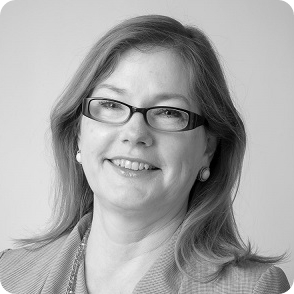
The story of the ugly duckling
ESG (environmental, social and governance) investing is the hottest topic of the summer – other than the weather. But for us, it isn’t a seasonal craze or a passing bandwagon. We’ve been taking sustainable investing seriously for 15 years.
Our Sustainable Balance Fund launched in 2007. Back then, sustainability was the ugly duckling of the investment world – no one was much interested in making a difference, and most people thought it was bound to perform less well than traditional investing.
From bad to worse
Things got worse during the Global Financial Crisis of 2008. Although the cause of the crisis had nothing to do with responsible investing, ESG or sustainability, it still punished sustainable funds more than traditional ones.
Largely, this was due to the crashing oil price, which made solar, wind and hydro look even more expensive compared to fossil fuels. The prices of renewable energy companies plunged and took a long time to recover, compared to traditional energy producers.
Between the start of 2008 and the end of 2009, Vestas Wind Systems, a Danish wind turbine producer, fell in value by 40%. Over the same period, Royal Dutch Shell fell by 10%. And by the end of 2010, Royal Dutch shares were back where they’d been three years before, whereas Vestas shares were 70% lower than their 2008 level.
That confirmed to sustainability sceptics that the whole ethical approach to investing was a waste of time, and it made our beliefs a lot more challenging to hold.
Keeping the faith
But we remained true to our convictions, stayed green, and stuck to our process. Being the ugly duckling isn’t enjoyable – but we had a group of clients who believed that what we, and they, were doing was the right way to invest. And, little by little, over the next decade, things started to turn around. Ever so slowly, the ugly duckling transformed into a sustainable swan.
The clean energy companies became more and more established, growing their market share at the expense of the energy companies. Other sustainable businesses sprang up across all areas of the economy, and governments began to move in the right direction too. More and more investors began to see that, with the right long-term time horizon, reducing ESG risk didn’t mean losing money.
Drivers of change
The two main drivers of this transformation have been developments in technology and in regulation. Renewable energy technology used to be very expensive – companies needed big subsidies to make producing renewable energy from solar panels or wind turbines worthwhile, and if the oil price was low going green was completely uneconomic.
However, there has been a sea change in the renewable energy market in the last decade, with prices for solar panels falling 70% as innovation has continued to improve efficiency. Not only do solar panels no longer need subsidies, they are now the cheapest new energy source available. Through the Sustainable Balance Fund, we were one of the early investors into renewable energy infrastructure when the first public listings appeared some seven years ago. And we’ve been well rewarded for our investment, with the holding in The Renewable Energy Infrastructure Group returning 9.3% per annum over the past seven years to June 2021 compared with the FTSE All Share Index return of 5.1% per annum.
The other big shift has been the increase in environmental regulation. It now costs you a lot of money if you are a polluter. Gas guzzling car drivers have to pay a premium to drive into city centres, and by 2030 the internal combustion engine will be as extinct as the fossils it was powered by. Polluting industries have to pay for the carbon they emit, which is driving them to reduce their emissions, and companies are increasingly aligning themselves with the Paris Climate Agreement target to reach net zero carbon emissions by 2050.
One of the most enjoyable and rewarding things about managing the 7IM Sustainable Balance Fund has been seeing how the investment landscape has changed over the years. People are not only taking ESG seriously but are pushing fund managers to demand more in terms of driving down carbon emissions and forcing the companies they own to behave better. The world’s caught up to where we were over 10 years ago, all that time spent being laughed at by the other ducklings suddenly seems worth it!
People are not only taking ESG seriously but are pushing fund managers to demand more in terms of driving down carbon emissions and forcing the companies they own to behave better.
Discover more



I confirm that I am a Financial Adviser, Solicitor or Accountant and authorised to conduct investment business.
If you do not meet this criteria then you must leave the website or select an appropriate audience.

